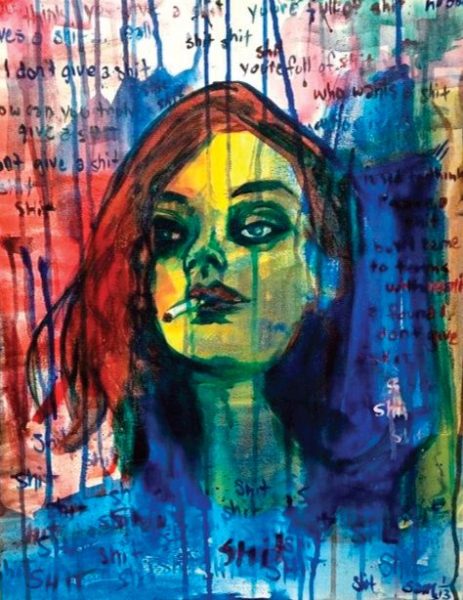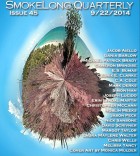So, this story has a distinctly middle earth/middle ages feel to it. It could be set in modern day Yugoslavia or for that matter in a different universe. Talk a bit about that.
I hadn’t thought about it that way, but I suppose that that sense might come from the fact that the family is separated from their regular, modern life here; they are “getting back to nature.” Except that the girl’s experience is not of a return but of encountering the strangeness of the natural world and really experiencing it as strange, confusing, unnerving—as something you are not really a part of, and that might well even be dangerous for you, or vice versa. And then she’s also dealing with the strangeness of herself, and learning about her own fear. So there’s something pretty primal and timeless/placeless about that.
I love the way you ended this piece. “Like the mud itself wanted to climb to the sky.” Where did this come from? What is this in reference to?
Yeah, it surprised me a little too. I guess it came as a sudden shift in perspective—as the other side of the coin of the image of the mud trying to bury them where they stood. Suddenly it’s not about the people and whatever inconvenience or pain or fear they’re dealing with; it’s about the mud’s own need for transcendence, which is desperate and sad and destructive, and really sympathetic.
Your bio references that you studied medieval literature at Columbia. Hard not to notice a thread between modern day lit and the era of Chaucer in this story. Would you mind talking a little about that?
That’s my inescapable thread. My literary life has been looping on that thread from medieval to modern since I was a kid. When I was young it was the fantasy Middle Ages: I read Tolkien and C.S. Lewis, and many less reputable books with castles and dragons in them. Later I went to high school and got “serious” about literature. And later still I read The Decameron and the Canterbury Tales and they blew my mind because they weren’t at all what I thought they would be. Part of what drew me to study the Middle Ages was that surprise—finding this totally rich, strange, and unexpected world—but it was also a world that was familiar in surprising ways too. My first Chaucer professor, Diane Cady, used to say that medieval literature is postmodern, and I still see that—there are some real resonances and affinities. My dissertation is about medieval authors who basically wrote metafiction. I guess some of that must seep into my other writing even when I don’t realize it.
Who are your biggest influences? What are you reading now?
Even after I got “serious” about literature I always had a soft spot for the fantastical, so: Borges, Murakami, Garcia Marquez, Toni Morrison, Italo Calvino. And then I’ve also always had a thing for retellings, like Wide Sargasso Sea and Grendel. That’s where my academic and creative sides really come together—I’m fascinated by how authors are able to reinhabit previous stories or traditions or myths, and I try to do that kind of retelling in a lot of my own work.
As for what I’m reading now: I spent this past summer, after finishing my Ph.D., rediscovering how good really good science fiction/ fantasy can be. I read Octavia Butler’s Parable of the Sower, and a bunch of stuff by Catherynne Valente—especially her short story “Silently and Very Fast,” which helped get me back to creative writing after a long period of just doing academic writing.
And right now I’m reading The Bacchae and the Odyssey for a course I’m teaching at Barnard College.
What are you working on now?
One part of my brain is working on turning my dissertation into a book. Another part is working on a short story that retells a twelfth century poem about a woman’s adulterous relationship with a knight who can transform into a hawk (Marie de France’s “Yonec”).


